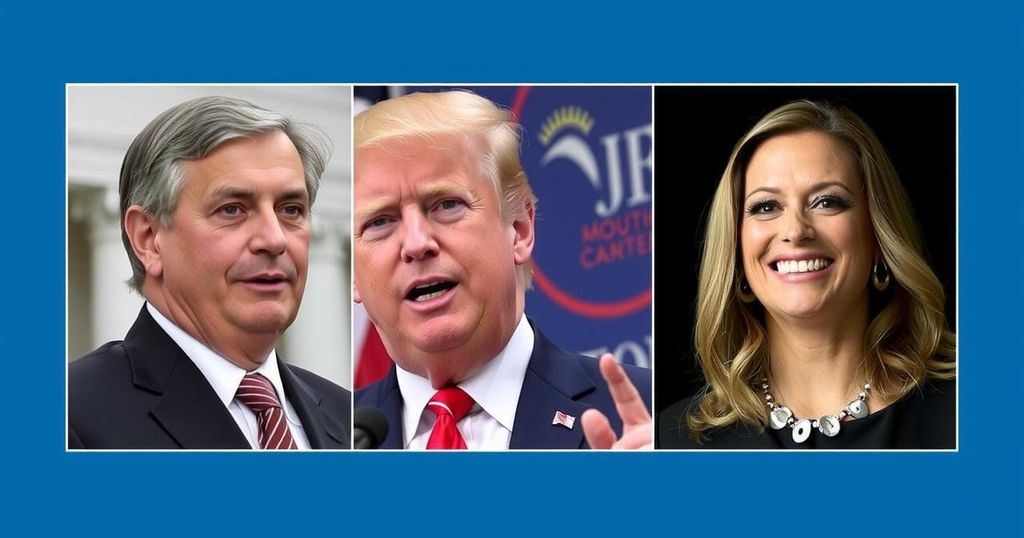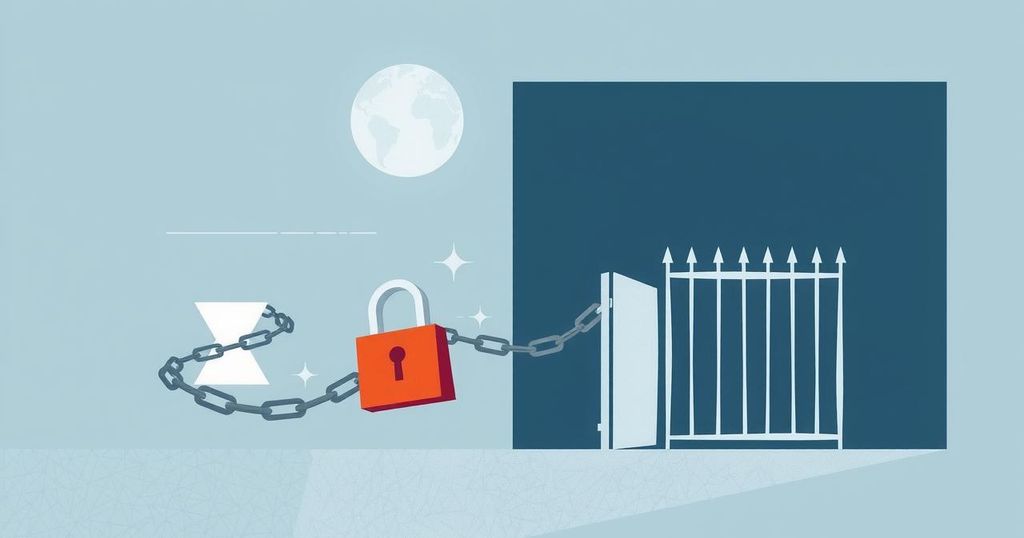Virginia’s Statehouse Control at Stake in Upcoming Special Elections
Three special elections in Virginia are poised to determine the control of the Statehouse, as both parties contest for key Senate and House seats. Candidates are primarily focusing on reproductive rights and party-line issues as they prepare for the elections that could significantly influence the balance of power in the legislature.
Three significant special elections in Virginia are set to take place, determining the control of the Statehouse during Governor Glenn Youngkin’s final year in office. Voter turnout in northern and central Virginia will fill two Senate vacancies and one House of Delegates seat. In Loudoun County, Republican Tumay Harding and Democrat Kannan Srinivasan compete to replace Suhas Subramanyam, who was recently elected to the U.S. House. Concurrently, Republican Ram Venkatachalam and Democrat JJ Singh are vying for Srinivasan’s vacated seat in the House of Delegates. Another major race in Goochland County sees Republican Luther Cifers challenged by Democrat Jack Trammell, aiming to succeed John McGuire, who transitioned to Congress after a narrow election victory.
The outcomes of these elections are critical, as they could significantly shift the balance of power in the Virginia legislature. Following recent Democratic losses in federal elections, these contests will serve as a litmus test for voter sentiment regarding party performance. Presently, Senate Democrats hold a slim 20-18 majority, while the House of Delegates features a 50-49 Democratic lead. Candidates are particularly focusing on the issue of reproductive rights as the state Democratic Party seeks to solidify those rights constitutionally.
Candidates Harding and Venkatachalam have concentrated their campaigns on key Republican issues such as parental rights, crime, and economic concerns. They argue that victories in these elections could enable Governor Youngkin to obtain a Senate majority, allowing for a legislative agenda favoring their party’s priorities. Harding remarked, “Our schools are faltering and riddled with politics and division… All of this could change if we win this election and give Governor Youngkin a new majority in the Senate.”
On the other hand, Democratic candidates, including Srinivasan and Singh, emphasize the necessity of upholding progressive values, particularly concerning women’s rights. Both candidates have positioned abortion rights at the forefront of their campaigns, aware of the heightened sensitivity surrounding this topic among voters. Srinivasan pointedly noted, “What motivates me is the high-stakes election. The Senate majority is on the line. The constitutional amendment is on the line.”
Democratic contender Trammell is seeking to penetrate a traditionally Republican stronghold by advocating for a more diverse and representative electoral process. He noted, “There are factors that are transforming District 10. To call it a monolithic, traditional-rural Republican district… is a little bit of a disservice to the people who are actually living there.”
As election day approaches, both parties acknowledge the pivotal nature of these races in shaping Virginia’s political landscape and reflect broader national trends in party dynamics.
The significance of these special elections in Virginia arises from recent changes in representation in the state legislature due to resignations linked to federal races. With a narrow majority in both legislative chambers, the outcome of these elections will influence not only the immediate political landscape but also set the stage for future legislative agendas. The elections are particularly critical in light of the shifting political sentiments following the recent presidential election, thereby attracting national attention to Virginia’s political dynamics.
In summary, the forthcoming special elections in Virginia are deemed critical in determining the legislative balance of power as both parties vie for control of the Statehouse. With key issues such as reproductive rights at the forefront and the recent electoral losses impacting party strategies, voter turnout will be essential. Given the historical context of these contests, the results may have lasting implications for Virginia’s political landscape and governance.
Original Source: abcnews.go.com




Post Comment